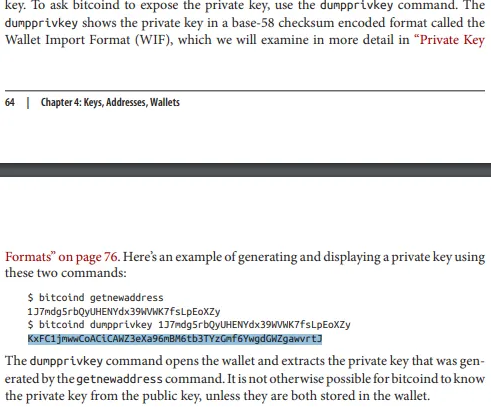
Can the Government Be a Crypto Owner - or Just a Key Holder?
The US Congress is considering a bill that would require the Treasury Department to deliver, within 90 days, an analysis of the capabilities, storage measures, cybersecurity, and legal grounds for the federal government to hold digital assets. In other words, they’re exploring the idea of a national digital asset reserve.
What I find most interesting are the legal grounds. I wrote about this in more detail in an article (worth a read if you haven’t yet). Let me remind you of one screenshot I used there.
It shows a private key to a real Bitcoin address, published in Andreas Antonopoulos’ well-known book Mastering Bitcoin. The question is: who exactly owns or holds the bitcoins at that address, if the private key is printed in a book that anyone can buy?
This isn’t fundamentally different from any other private key - except that in this case, we know for certain it’s accessible to an unlimited number of people. For most other keys, we simply don’t know how many people have access. So even if the government can prove it has a certain key, does that really make the government the owner or the holder of the coins tied to it? After all, the very same key could just as easily be in the hands of a former employee, or even their family - and they’d have full authority to move the funds without the government’s knowledge or consent.
It’s a tricky legal question, and I’m curious to see how Treasury lawyers will try to spin it.
Though honestly, I’d much rather see crypto stay outside government frameworks. I’ll take free exchange any day - like on rabbit.io.













